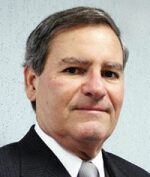The tragic blowout of Macondo has triggered many technical and managerial developments in the field of well integrity since its occurrence in April 2010. Acting as a catalyzer since then, this event has demanded from all industry players a huge amount of effort to mitigate the risk of well-integrity problems.
Originally, these efforts were aimed at deepwater drilling in the Gulf of Mexico, but, with time, they were disseminated throughout the oil industry, where well integrity is a must. Undoubtedly, significant progress has been made in enhancing safety during all phases of the well life cycle, mainly in the areas of well-control equipment and reliability, subsea well control and containment, documentation, training and competency assurance, and well-integrity management systems and processes.
Here, I address important headway made in two areas in which I have been deeply involved during my professional career, mainly after Macondo: well-integrity documentation and well-control training and competency assurance.
One of the first actions in response to the blowout was the formation of four joint-industry taskforces. Two of them provided recommendations on operating procedures and equipment that resulted in the revision of some American Petroleum Institute standards and the development of new ones. Some other standardization organizations also have been making contributions, elaborating and revising well-integrity-related standards (such as NORSOK D-010 and ISO 16530‑2). Many operator companies (including mine) and drilling contractors have been reviewing and updating their well-integrity procedures and practices, especially those related to deepwater operations.
Concerning well-control training and competency assurance, following the recommendation of Report 476 of the International Association of Oil and Gas Producers, the certifying bodies executed changes in the contents of the courses to stress important subjects such as barrier management, risk management, well influx detection, and immediate response and to adapt the training to well operation, rig category, and responsibility of the people involved with all types of operations. Thus, the crew members are now trained and assessed better according to their roles on the rigs. More class hours are now dedicated to simulator exercises. Arguably, this move is making the well-control-certification systems more reliable and more standardized among all training institutions.
This Month's Technical Papers
Method of Surface Interception To Access Annulus With Abnormal Gas Pressure
Smart Kick Detection—First Step on the Well-Control-Automation Journey
Analytical Model Estimates Flow Rate and Total Discharge in Gas-Well Blowouts
Recommended Additional Reading
SPE 175523 Searching for Well-Integrity Issues—Automated Generation of Annulus-Pressure Trends by Remco Donders, Total E&P UK, et al.
OTC 25256 Enhancing Well Control Through Managed-Pressure Drilling by Oscar Gabaldon, Blade Energy Partners, et al.
SPE/IADC 173822 Field Trial of Well-Control Solutions With a Dual-Gradient Drilling System by John H. Cohen, Enhanced Drilling, et al.

Otto Luiz Alcantara Santos, SPE, is the coordinator of the well-control training and certification program of Petrobras, instructor of deepwater and advanced well-construction technologies at Petrobras University, and a master technical adviser of Petrobras. He holds a BS degree in civil engineering and an MS degree in petroleum engineering from the Colorado School of Mines and a PhD degree in petroleum engineering from Louisiana State University. Santos was also a faculty member at the University of Tulsa in 1994. He has written several technical papers in well-construction technology, especially on well integrity and directional and horizontal drilling, and he coauthored the book Directional Drilling. Santos is editor of the SPE book Drilling and Production Operations in HPHT Wells. He was an SPE Distinguished Lecturer for 2009–10. Santos is the current program chairperson of SPE Bahia/Sergipe Section and has served or is currently serving on several SPE committees. He is also a member of the JPT Editorial Committee. In 2010, Santos received the Exemplary Service Award from the International Association of Drilling Contractors.
